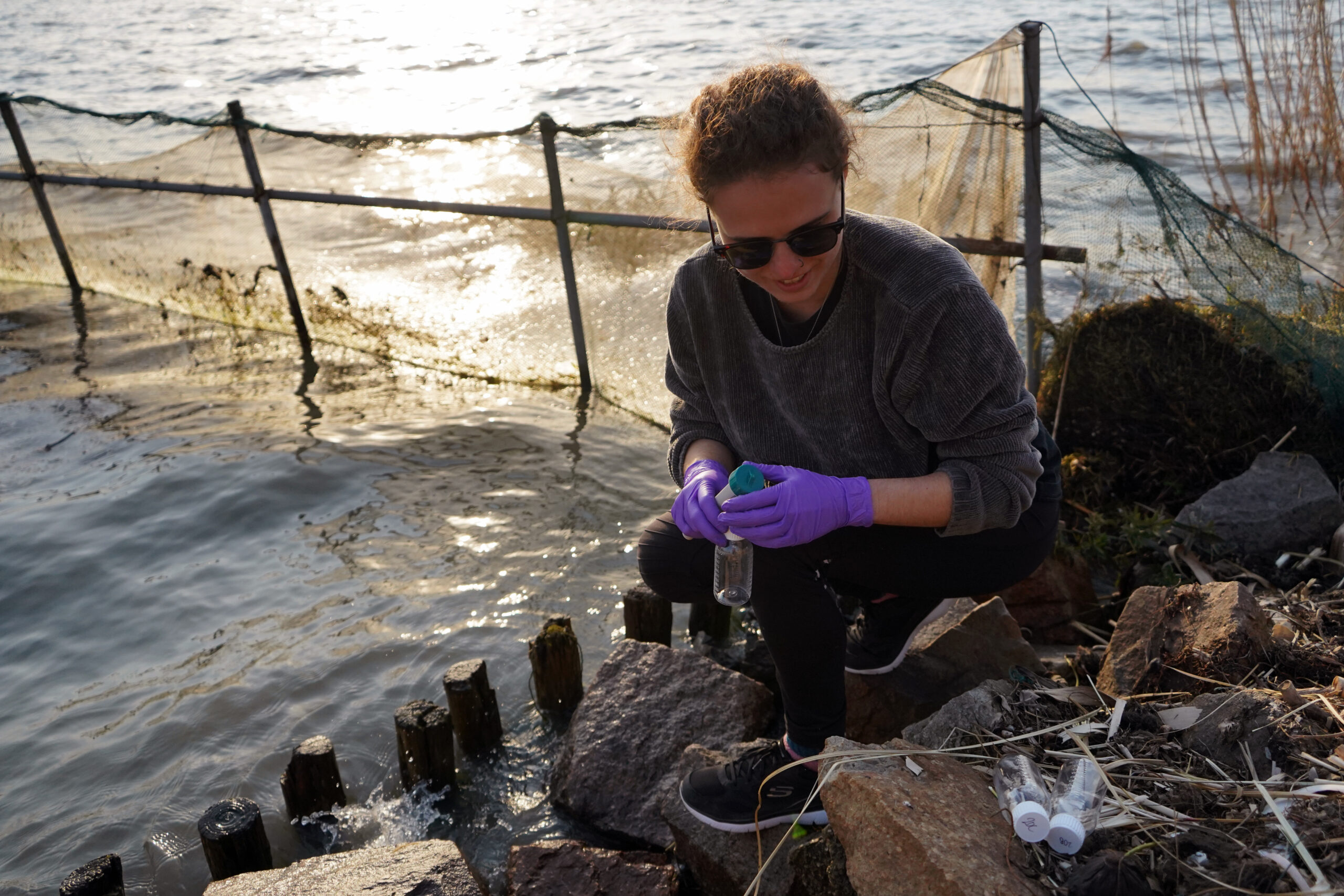Environmental Health Engineering
The environment is critical to human health, and human activity affects the health of ecosystems. Duke’s research in environmental health engineering addresses the consequences of society’s production and use of energy and materials, emphasizing approaches to protecting the health of human populations as well as predicting, monitoring and managing impacts on air, water and other global cycles. Duke CEE works closely with Duke’s Nicholas School of the Environment on many research and educational efforts.

Research Areas
- Contaminant transport and transformation
- Environmental sensing
- Environmental implications of emerging materials
- Microbiome engineering
- Environmental toxicology and adaption
- Data analytics for environment and health
- Water, sanitation and hygiene
- Atmospheric transport and chemistry
- Waste-to-energy and resource recovery
- Environmental risk assessment
- Novel technologies for air and water quality
- Geo-health

Major Centers & Initiatives
Duke’s externally funded research centers and training programs in environmental health engineering include:
Related Study Opportunities
-
Offers study tracks in:
-
- Environmental Engineering and Public Policy
- Environmental Health Engineering
- Ecohydrology and Environmental Fluid Dynamics
-
- Offers a concentration in Environment and Population Health
-
- Integrated Toxicology and Environmental Health Program (ITEHP)
- NanoHEAT (Cooperative Training Program in Nanomaterials Hazard and Exposure Assessment Traineeships)
-
- Major in Environmental Engineering
- Major in Civil Engineering and access the Environmental Engineering & Water Resources study track
- Dual major in Civil and Biomedical Engineering with a focus on environmental and biomedical toxicology
Associated Faculty

Mike Bergin
Sternberg Family Professor of Civil & Environmental Engineering

Fred Boadu, Ph.D.
CEE Director of Master’s Studies, Associate Professor of Civil & Environmental Engineering

Mark Borsuk
James L. and Elizabeth M. Vincent Professor of Civil and Environmental Engineering

Andy Bragg, Ph.D.
Associate Professor of Civil and Environmental Engineering

David Carlson
Yoh Family Associate Professor of Civil and Environmental Engineering

Nathaniel Chaney
Assistant Professor of Civil and Environmental Engineering

Jeseth Delgado Vela
Assistant Professor of Civil and Environmental Engineering

Marc Deshusses, Ph.D.
Professor of Civil and Environmental Engineering

Leanne M Gilbertson, Ph.D.
Associate Professor of Civil and Environmental Engineering

Claudia Gunsch, Ph.D.
Muriel Theodorsen Williams E’46 Distinguished Professor of Civil and Environmental Engineering

Heileen Hsu-Kim
Director of Graduate Studies, Professor in the Department of CEE

Prof Andrew D Jones, Ph.D.
Assistant Professor of Civil and Environmental Engineering

Zbigniew Kabala, Ph.D.
Associate Professor of Civil and Environmental Engineering

Miguel A. Medina
Professor Emeritus of Civil and Environmental Engineering

J. Jeffrey Peirce
Associate Professor Emeritus of Civil and Environmental Engineering

Nicole C Rockey, Ph.D.
Assistant Professor of Civil and Environmental Engineering

Lisa L Satterwhite
Associate Research Professor in the Department of Civil & Environmental Engineering

David E. Schaad
CEE Director of Undergraduate Studies, Professor of the Practice

Mark Wiesner, Ph.D.
James B. Duke Distinguished Professor of Civil and Environmental Engineering
Other Research Specialties
Explore additional specialty research areas in Duke CEE and throughout the Pratt School of Engineering.



